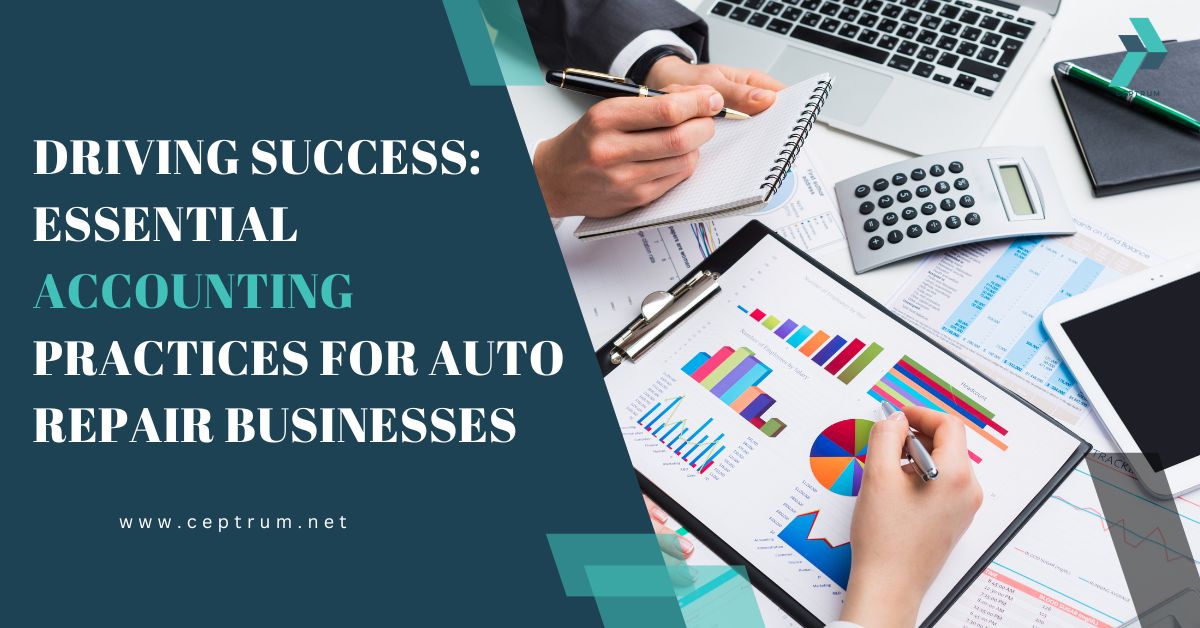Introduction
Are you a proud owner of an auto repair shop? As you focus on providing stellar services to your customers, it’s crucial not to overlook the financial aspect of your business. Effective accounting practices play a vital role in ensuring the success and longevity of your auto repair venture. In this article, we will explore the essential accounting practices that can drive success for your auto repair business. From automotive accounting to managing expenses, we’ve got covered.
1. Understanding Automotive Accounting
To lay a solid foundation for your auto repair business, it’s imperative to grasp the fundamentals of automotive accounting. Automotive accounting involves keeping track of your financial transactions, revenues, and expenses specific to the auto repair industry. By maintaining accurate and detailed records, you will gain insights into the financial health of your business. This understanding will enable you to make informed decisions and optimize your operations.
- Always keep separate business and personal accounts to avoid commingling funds.
- Utilize specialized accounting software tailored to the auto repair industry for accurate and efficient bookkeeping.
- Familiarize yourself with unique terminologies like cost of goods sold, parts inventory, and labor costs.
Pro tip: Just like a well-maintained car can run smoothly, an accurately tracked financial system can keep your business on the road to success!
2. Efficient Bookkeeping Practices
Bookkeeping serves as the backbone of any successful business, and auto repair shops are no exception. Proper bookkeeping practices help you stay organized, maintain compliance, and make sound financial decisions. Consider implementing the following practices to streamline your bookkeeping:
a. Track Every Transaction
Maintain a meticulous record of every financial transaction related to your auto repair business. This includes invoices, receipts, and any other relevant documents. By diligently tracking transactions, you can avoid discrepancies and provide accurate financial information as and when needed.
b. Categorize Income and Expenses
Create distinct categories to classify your income and expenses accurately. This categorization will enable you to monitor your cash flow, identify areas of high expenditure, and make informed adjustments to boost profitability. Some common categories for an auto repair shop include parts and supplies, labor costs, overhead expenses, and advertising expenses.
c. Regular Reconciliation
Regularly reconcile your financial records to ensure accuracy and uncover any errors or discrepancies. Reconciliation involves comparing your business’s financial transactions with your bank statements. This practice helps identify any missing transactions or fraudulent activities, providing you with a clear picture of your financial standing.
Friendly reminder: Bookkeeping is not just about crunching numbers; it’s your compass to navigate the financial terrain of your auto repair shop effectively.
3. Managing Expenses Effectively
Managing expenses is a crucial aspect of running a profitable auto repair business. By implementing effective expense management strategies, you can maximize your profits and optimize your operations. Here are some practices to consider:
a. Track Variable and Fixed Costs
To gain a comprehensive understanding of your expenses, it’s essential to differentiate between variable and fixed costs. Variable costs fluctuate with the volume of business, such as parts and supplies. Fixed costs, on the other hand, remain constant regardless of the business’s performance, like rent and insurance. By tracking these costs separately, you can identify areas where expenses can be reduced, contributing to increased profitability.
b. Implement a Budget
Creating and adhering to a detailed budget can help you maintain financial discipline in your auto repair business. Forecast your expected revenue and allocate funds to various expenses, considering both fixed and variable costs. Regularly review your budget and make necessary adjustments to ensure you stay on track.
c. Leverage Technology
Embrace technology solutions that can streamline your expense management processes. Utilize expense tracking software to automate expense recording, track spending patterns, and generate insightful reports. This technology-driven approach saves time, minimizes errors, and empowers you to make data-driven decisions.
Quirky analogy: Managing expenses without a plan is like driving with a blindfold on. You may continue moving forward, but you won’t know if you’re headed towards a financial roadblock!
Conclusion
By implementing essential accounting practices tailored to the unique needs of auto repair businesses, you position yourself for long-term success. From understanding automotive accounting to efficient bookkeeping and effective expense management, these practices form the pillars of financial stability and growth. Embrace the power of accurate record-keeping, meticulous bookkeeping, and strategic expense management to drive the success of your auto repair business. Remember, a well-maintained financial engine keeps your business running smoothly in the fast lane of profitability!
Read More:
A Comprehensive Guide to Choosing the Right Auto Repair Bookkeeping Company






